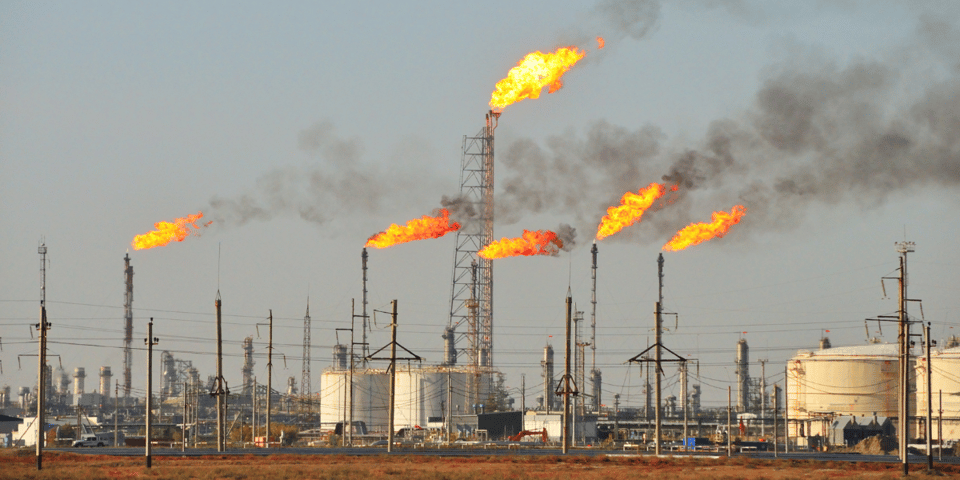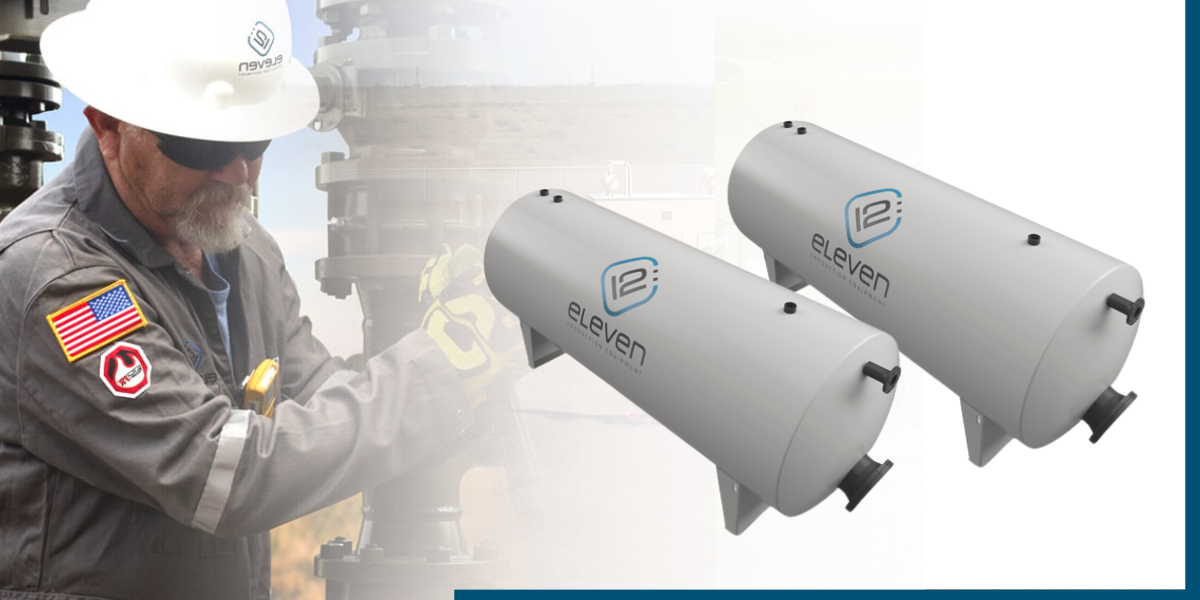Free Water Knockout (FWKO): What You Need To Know
Free water knockouts (FWKO) are an essential component in the oil and gas industry, designed to remove any free water present in the production...

Historically, Environmental, Social, and Governance (ESG) issues within the oil and gas industry has been placed in various positions along the priority scale.
However, as ESG public policy has become more of a focus in recent years, and advances in environmental friendly technology have been made available, ESG has become a high priority of most oil and gas operators. This trend is likely to continue as the industry grows and matures. Oil and gas companies that ignore ESG will find themselves at a competitive disadvantage and subject to regulatory penalties.
In this blog post, we will take a closer look at ESG in the oil and gas industry, and discuss how recent orders by the Biden administration has impacted decisions being made by many oil and gas companies. We will also explore some benefits of ESG in oil and gas, and how it can help companies meet sustainability initiatives.
ESG is an acronym that stands for Environmental, Social, and Governance (also known as "ESG investing", “socially responsible investing,” “impact investing,” and “sustainable investing”) refers to investing which prioritizes optimal environmental, social, and governance (ESG) factors or outcomes.
ESG issues with regard to the environment are largely driven by climate change. Many companies in the energy sector have begun to address these concerns with more efficient production methods and technology designed to reduce carbon emissions. These efforts can lead to cost savings as well as public goodwill towards the company, and ultimately value creation for all stakeholders of the business.
Social criteria examine how it manages relationships with employees, suppliers, customers, and the communities where it operates. Social concerns can include such things as human rights issues, such as child labor or unfair wages. Most companies address these concerns through corporate social responsibility (CSR) programs, which may include company-wide policies that prohibit the use of child labor or encourage ethical business practices.
Governance can refer to several issues with regard to corporate management (i.e. leadership, executive pay, audits, internal controls, shareholder rights, etc.) . This can include transparency and conflict of interest policies, as well as internal structure and external relationships. For example, companies typically have internal conflict of interest policies to prevent the company's management from awarding contracts based on personal ties rather than merit.
The U.S oil and gas industry has been highly impacted by the growing trend toward ESG issues and compliance. Investors that identify as socially conscious are increasingly investing in companies that have made ESG a high priority within the organization. There is also a significant increase in requests from investors and customers for environmental impact reporting.
Aside from the direct economic cost and benefits to businesses undertaking ESG initiatives, there is growing regulatory pressure on companies to address environmental issues resulting from the governments efforts to meet worldwide climate and other environmental imperatives.
The fight against climate change and "environmental justice" has been at the heart of the Biden Administration's policy goals. President Biden promptly re-joined the Paris Agreement and announced a 2030 goal for reducing Green House Gas (GHG) emissions by 50% from 2005 levels upon taking office. Getting there will require stepped-up federal regulation and enforcement of environmental protection across a wide range of industries.
Furthermore, within days of his inauguration, President Biden signed Executive Order 14008 titled Tackling the Climate Crisis at Home and Abroad, further demonstrating his desire to establish a government-wide approach to deal with the "climate crisis" and ensuring that environmental and economic justice concerns are considered throughout the Administration's policies.
Biden has issued several executive orders directing federal agencies to implement ESG-related practices, including a key order on Jan. 27, called “Tackling the Climate Crisis at Home and Abroad." This order:
Key recent and ongoing EPA rules and proposals affecting climate change, ESG and the oil and gas industry include:
It's also clear that the administration is relying on regulatory agencies (i.e. EPA, OSHA) to advance ESG policies. The recent involvement of OSHA in climate change as a workplace safety concern, with the agency preparing to implement standards to protect against heat and fire hazards, is an example of this. The EPA is also taking active steps to advance President Biden's commitment to action on climate change.
According to an EPA press release from November 2021, one third of the warming from greenhouse gases today is due to human-caused emissions of methane, a potent greenhouse gas 30 times more powerful than CO2 in trapping heat in the atmosphere over a 100-year period. Methane is a primary constituent of natural gas, and in the United States, the oil and gas industry is the largest industrial source of methane emissions.
Increased scrutiny of the upstream carbon intensity associated with the production of fossil fuels (oil and gas) has prompted investors, consumers, and producers to seek new and innovative ways to reduce their carbon footprint and methane intensity.
Due to public and governmental pressure, some major oil and gas companies such as ExxonMobil, Total, and Shell are proactively supporting efforts to combat climate change. These efforts include reducing carbon and methane emissions in their own operations, as well as promoting research on renewable energy sources. This has caused many other oil and gas operators to also develop short-term and long-term goals and objectives around ESG.
Historically, Environmental, Social, and Governance (ESG) issues within the oil and gas industry has been placed in various positions along the priority scale. However, as ESG public policy has become more of a focus in recent years, and advances in environmental friendly technology have been made available, ESG has become a high priority of most oil and gas operators. This trend is likely to continue as the industry grows and matures, and as the public, government and investors continue to demand action.
Oil and gas and energy companies that ignore ESG will find themselves at a competitive disadvantage and subject to regulatory penalties. A lack of an ESG strategy will ultimately affect a company’s access to the public and private capital. This lack of capital will become a value destroyer.
Every business must first understand its position against the ESG framework. That analysis and evaluation will drive the development of ESG corporate goals and objectives, and ultimately policies and procedures that are tailored to these ESG commitments. As companies meet their ESG goals and objectives value is created for the business and its stakeholders.
ESG-friendly engineering will likely continue to surge in popularity, as it promises cleaner, cheaper and safer ways of producing public works projects and equipment.
Due to the ongoing discussions and focus on climate change, Environmental, Social, and Governance (ESG) issues have become a high priority to all industries - especially to the oil and gas industry.
On November 2, 2021, the EPA took an important step forward to advance President Biden's commitment to action on climate change and protect people's health by proposing comprehensive new protections to sharply reduce pollution from the oil and gas industry (with a focus on methane emissions).
As a result, ESG is becoming an important factor for companies making investments in the energy sector.
Some benefits of ESG include:
Discover the strengths that the specialists in innovation and customization bring to production and process equipment, and innovative ESG solutions (including our Air Compressor Packages) Contact 12:eleven and experience quality that is reliable, efficiency that is proven and service that is unsurpassed.
We invite you to request a quote for our products or services, or to learn more about our ESG solutions including our Air Compressor packages.
Oil and Gas Production and Process Equipment - In this blog post we will dive into the most important pieces of oil and gas production equipment. We will also talk about how to maintain them properly.
What You Need to Know About Gas Dehydration Units - Here's everything you need to know about gas dehydration units and how they can be used to eliminate unwanted moisture from recovered natural gas.
Everything you need to know about Glycol Contact Towers - In this post, we'll provide an overview of what a glycol contact tower is, explain the benefits of using one, and the types available.
What is Instrument Air? - Discover the role of instrument air in oil and gas operations, its composition, purpose, and how it drives efficiency, safety, and ESG goals
ESG: How it Applies to the Oil & Gas Industry and Why It Matters - https://www.womblebonddickinson.com/us/insights/articles-and-briefings/esg-how-it-applies-oil-gas-industry-and-why-it-matters
Biden’s 2021 ESG orders set stage for environment, health and safety battles - https://www.reedsmith.com/en/perspectives/energy-commodities-outlook-2021/2021/12/bidens-2021-esg-orders-set-stage-for-environment-health-and-safety-battles
U.S. to Sharply Cut Methane Pollution that Threatens the Climate and Public Health - https://www.epa.gov/newsreleases/us-sharply-cut-methane-pollution-threatens-climate-and-public-health
As a specialty company providing custom design, engineering and fabrication of production and process equipment, we are dedicated to doing what’s right for our customers and passionate about creating value on every project.
We leverage the field expertise of our design and engineering group together with our diversified manufacturing capabilities to deliver a broad range of innovative surface production equipment - including Separators, Treaters, Free Water Knock Outs, Bulk and Test Packages, Indirect Line Heaters, Gas Production Units, Gas Dehydration Units, Glycol Contact Towers, Storage Units, Vapor Recovery Towers, Oil Stabilizing Towers.

Free water knockouts (FWKO) are an essential component in the oil and gas industry, designed to remove any free water present in the production...

Gas Production Units (GPUs) are a crucial component of the oil and gas industry. They play a significant role in the extraction, processing, and...

Piping modules and spools are an important part of any piping system. They help to keep the fluid in the system moving by providing a path for it to...